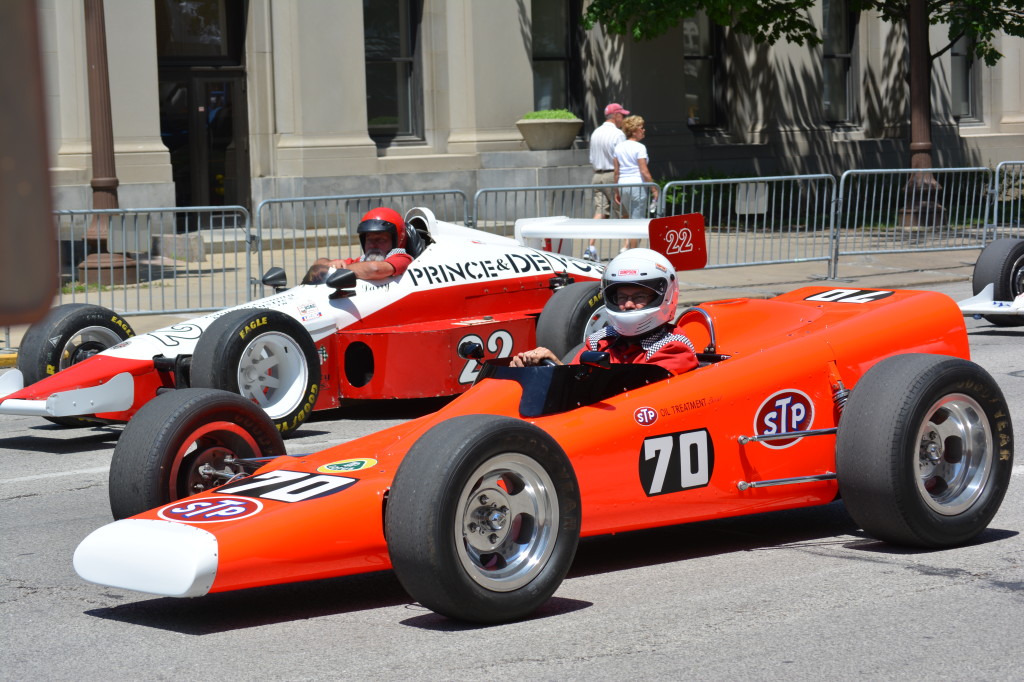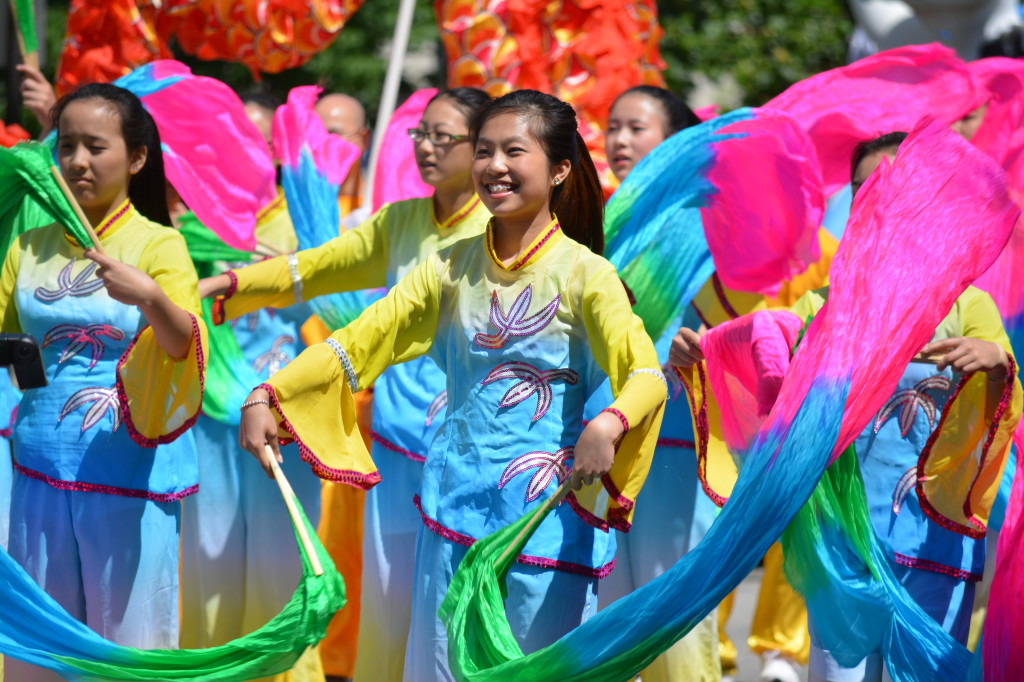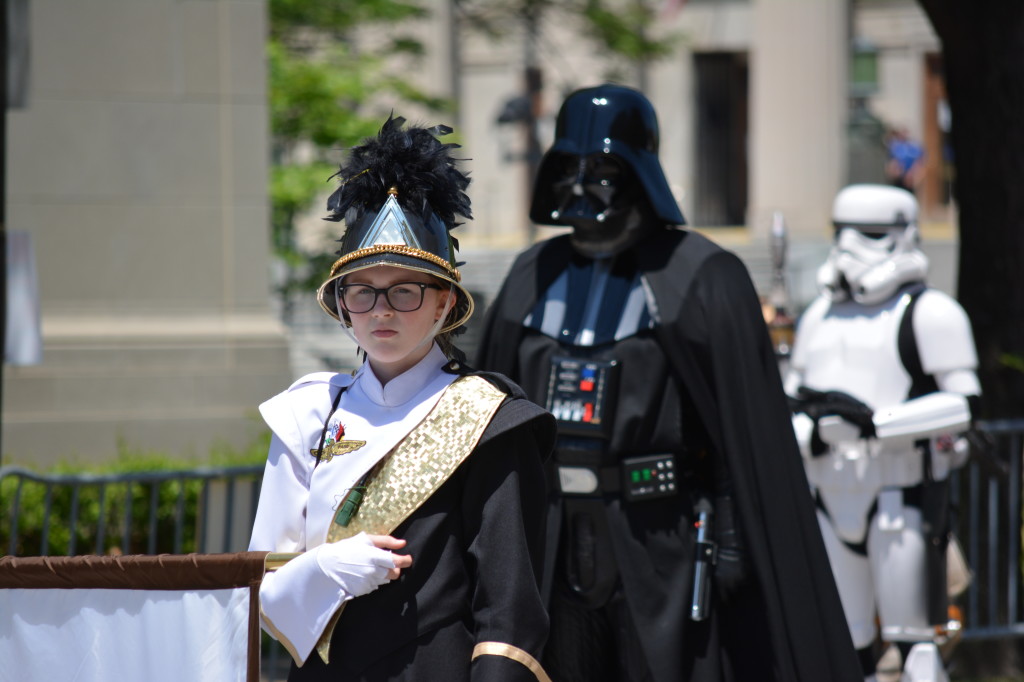Posted On: May 27, 2015 By :
Indy 500 Takes Over Indianapolis
There are few destinations fortunate enough to have a sporting event that attracts roughly 300,000 people in one day, let alone one that is synonymous with the city name itself. But the Indy 500 is unlike most other sporting events, and its presence throughout Indianapolis over Memorial Day weekend and beyond was ubiquitous. Visitors in town for the race, which had its 99th running on May 24, had plenty of opportunities to take in some automotive history both on and off the track.
One example was at the Indianapolis Museum of Art, which is featuring a “Dream Cars: Innovative Design, Visionary Ideas” exhibit from May 3 through August 23 to coincide with the race. The exhibit features 17 concept cars dating back to the early 1930s, including some of the rarest automobiles known to exist. In a nice touch, audio tours of the exhibit are available in greater detail for adults but also simpler detail for children. The Indianapolis Children’s Museum has also been taking advantage of the opportunity to attract visitors, hosting a Hot Wheels exhibit from May 9 to August 16 that allows families to test their tire-changing skills at a Family Pit Stop Challenge, among other features.
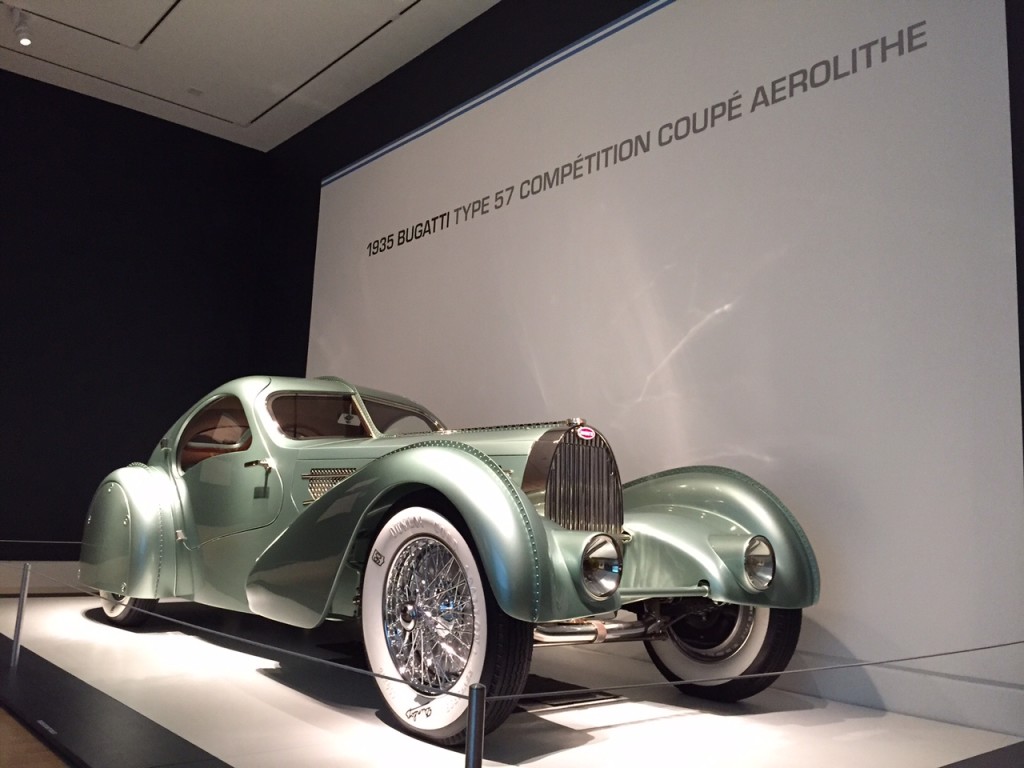
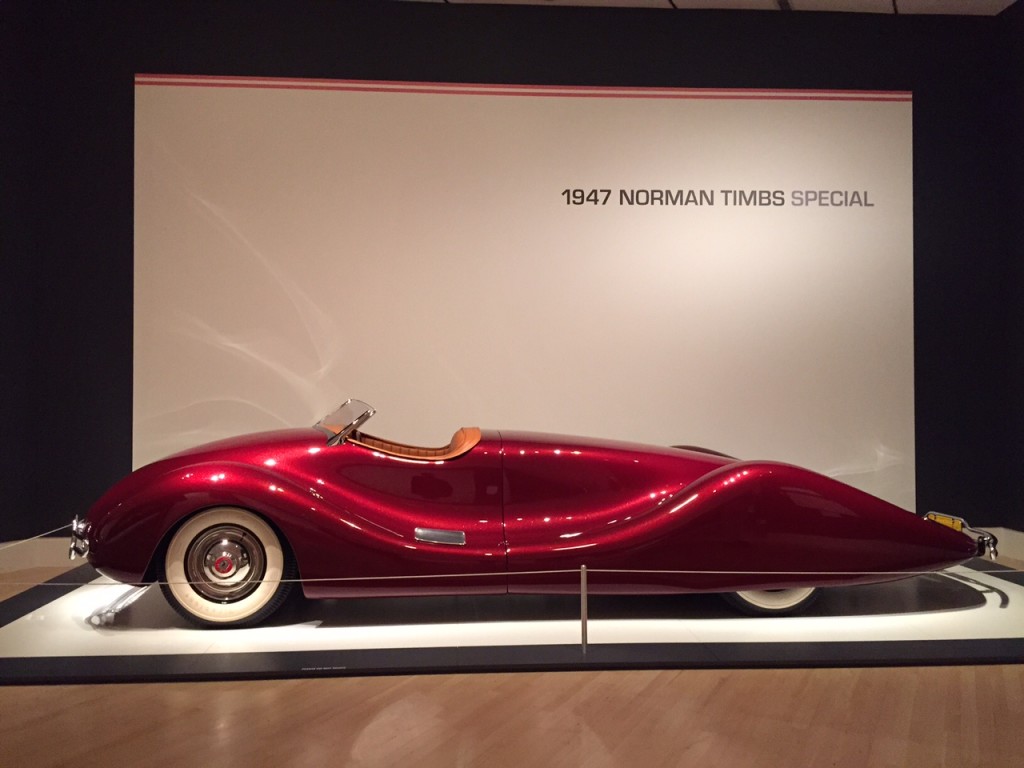
On the Saturday before the race, the IPL 500 Festival Parade wound its way through downtown Indianapolis featuring athletes such as Nastia Liukin, the 2008 Olympic all-around champion. The gymnastics tie-in was due in part to the P&G Gymnastics Championships, a USA Gymnastics event that will be staged in Indianapolis August 13–16, making for a nice cross-promotion among events in the city.
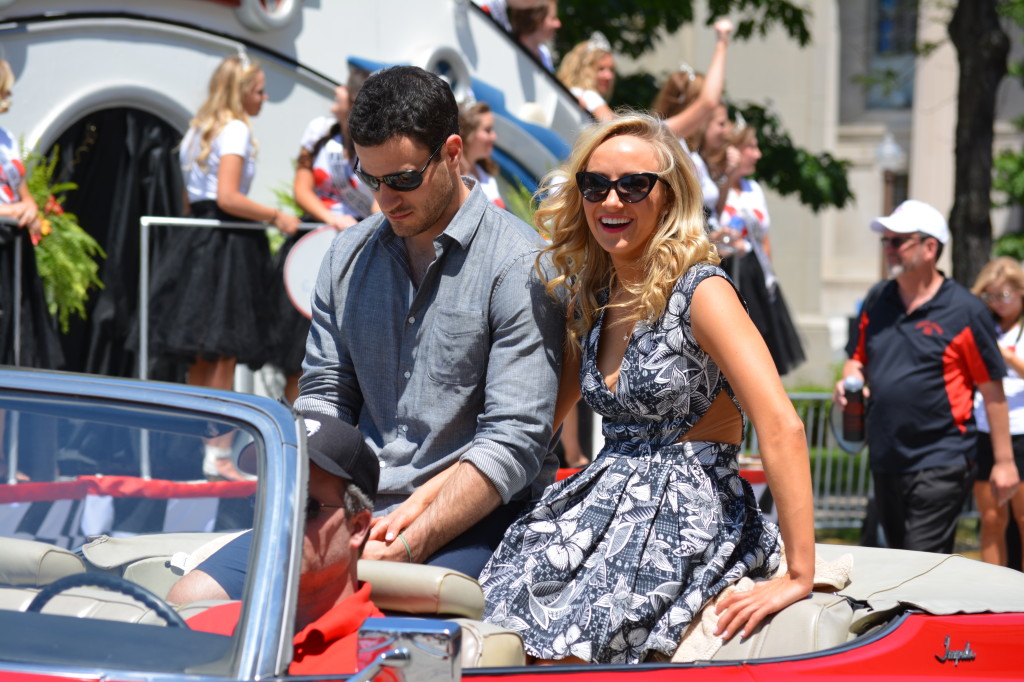
Floats of all kinds greeted parade goers. Many of the floats and entries, of course, included racing themes. In some cases, pop culture references like “Star Wars” were enough to gain entry. The parade has been a fixture in Indianapolis since 1957.
The drivers themselves got some time off behind the wheel, with each sitting on the back of a Corvette along with a guest or guests of their choosing. In some cases, that meant their families. In others, it was wives or girlfriends. And in at least one case, one driver brought his dog. Regardless of their guest, the drivers seemed quite relaxed considering the competition that was to greet them on Sunday.
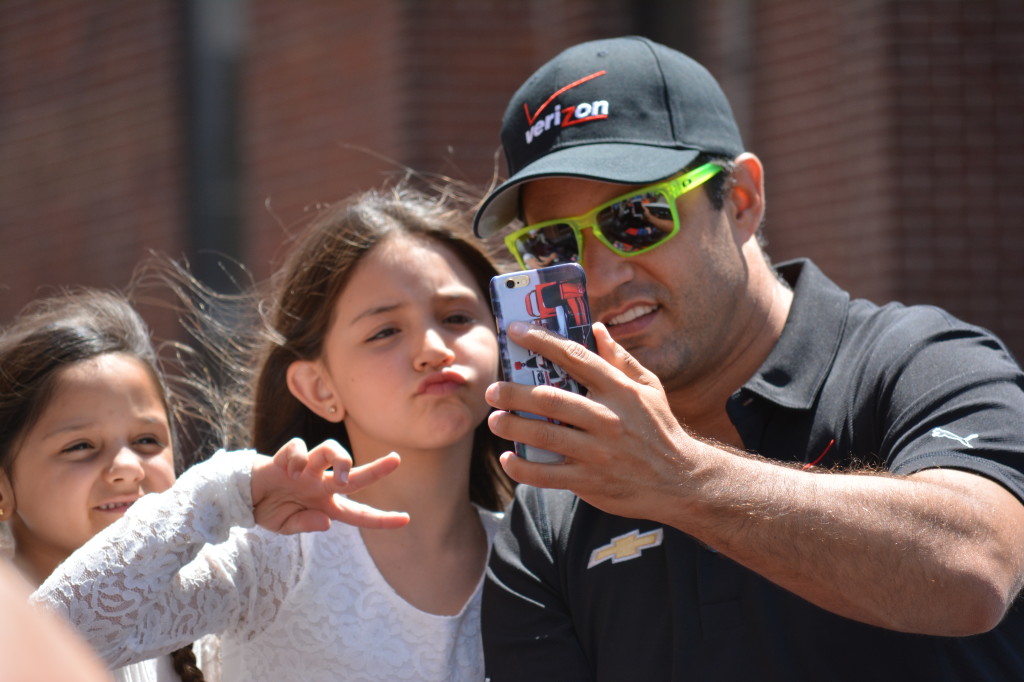
As for race day itself, the largest single-day sporting event in the world felt like it when it came to traffic on the roads leading up to the Indianapolis Motor Speedway. But in a certain irony outside a venue that has become iconic for its four left-hand turns, those same rules didn’t always apply on the nearby streets.
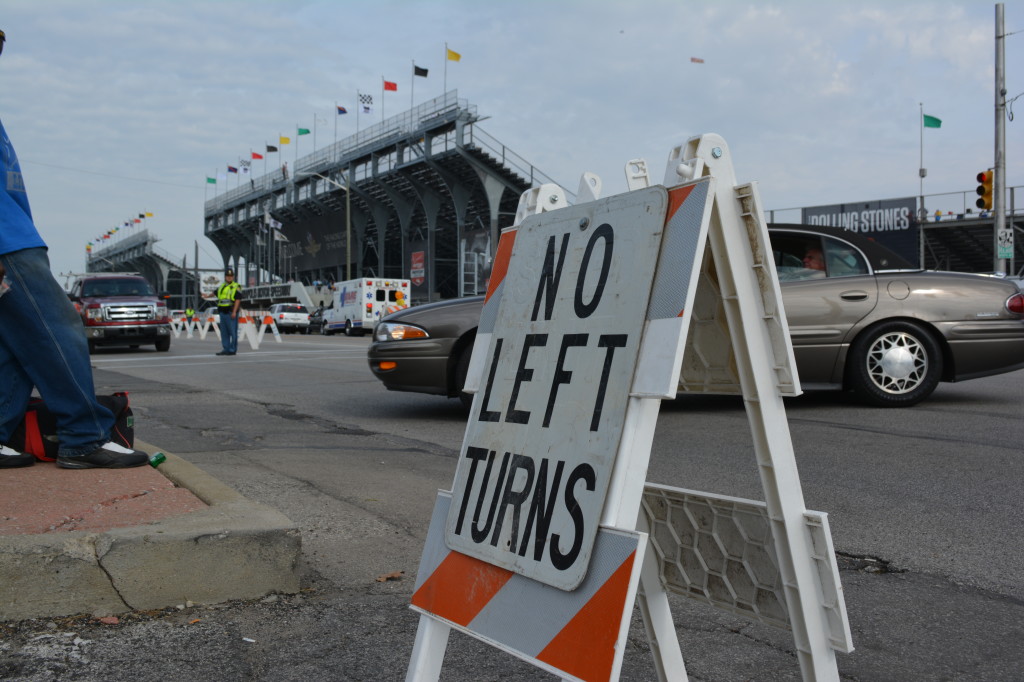
Inside, fans with pre-race tickets had remarkable access to the drivers and their teams before the race. Fans could walk around the team garages as they prepared for the race, but had to be careful not to be run over by moving cars or to fall into any number of tire stacks along the way. In fact, there were more than a few reminders of how fast the cars go when they start, underscoring the need for fans to find their seats once the real action begins.
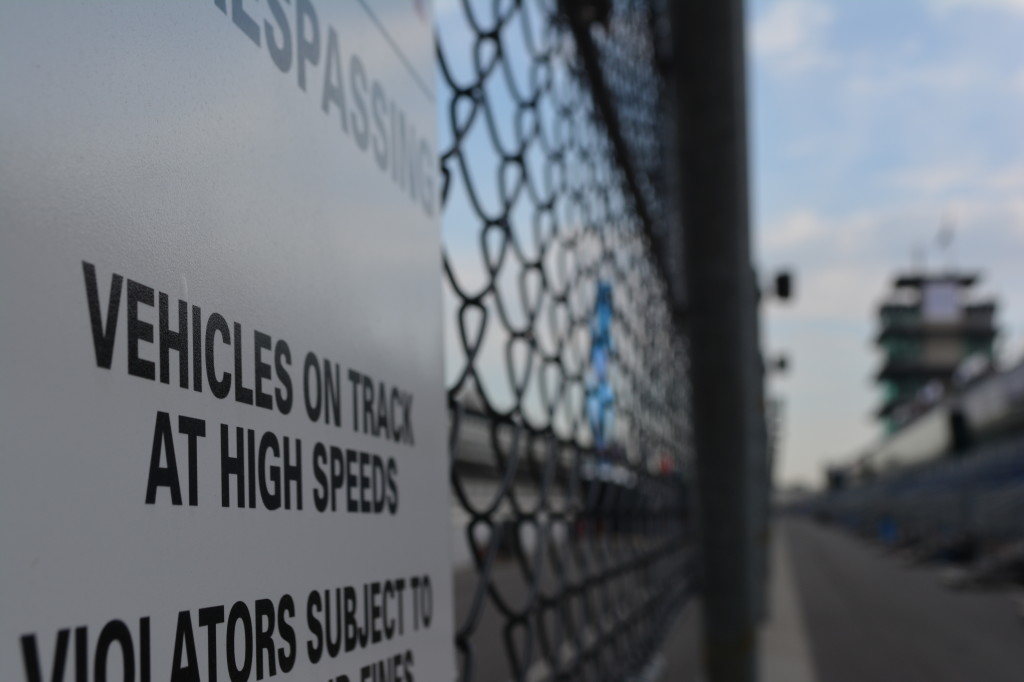
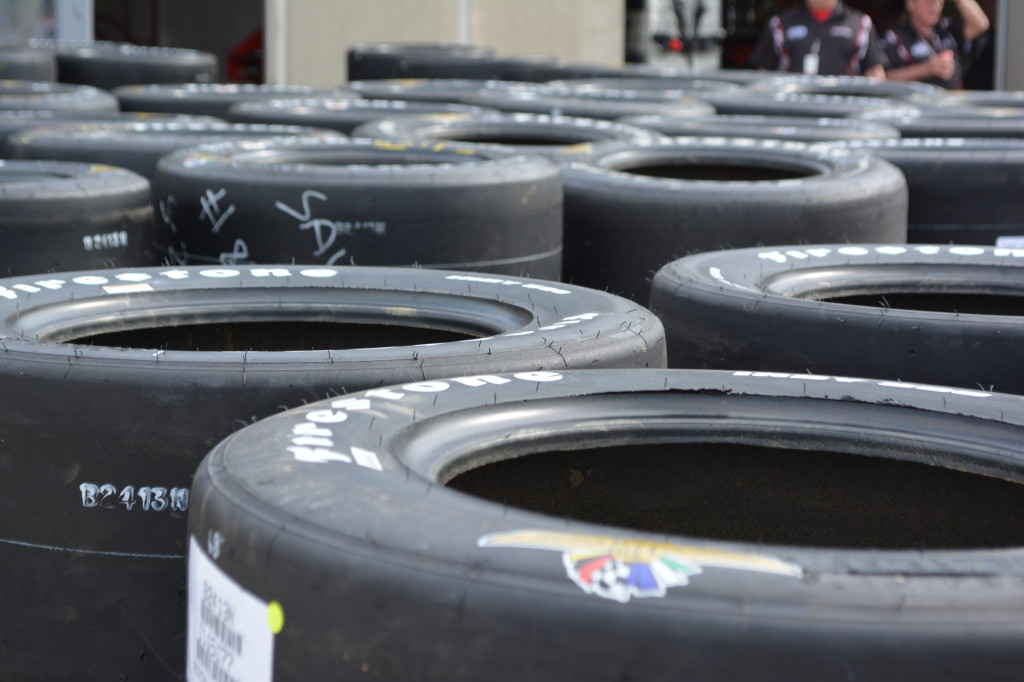
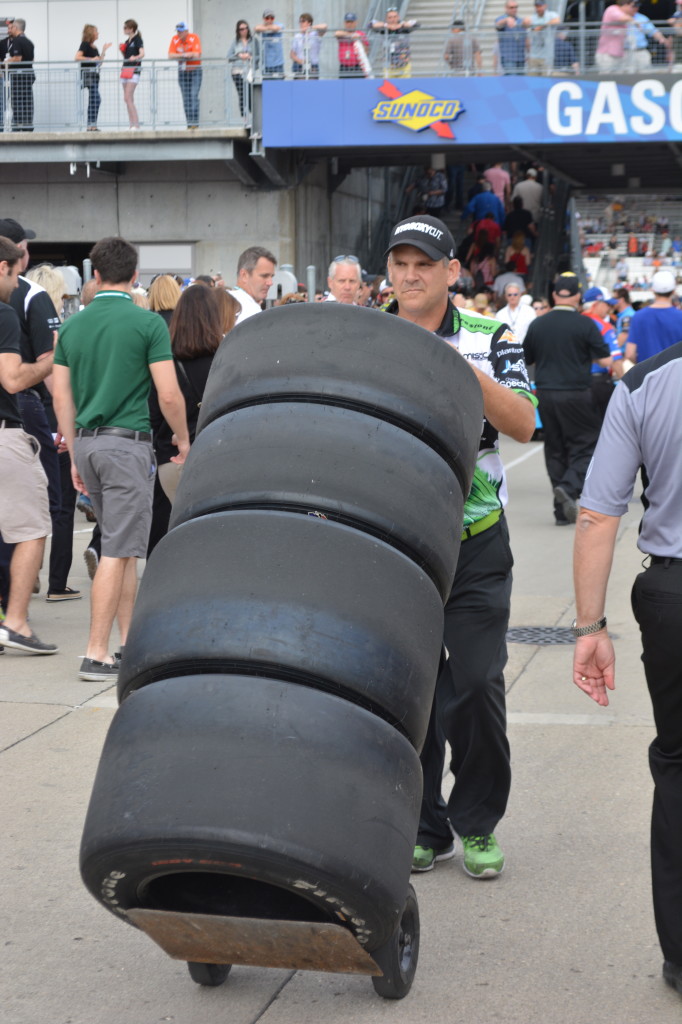
Once the cars had moved on to the track, fans also had access to the front straightaway where IndyCars would later be traveling at upwards of 230 mph. That included views of the speedway’s iconic pagoda and recently renovated pylon. They could also get close-up views of the Borg-Warner Trophy that goes to the winner.
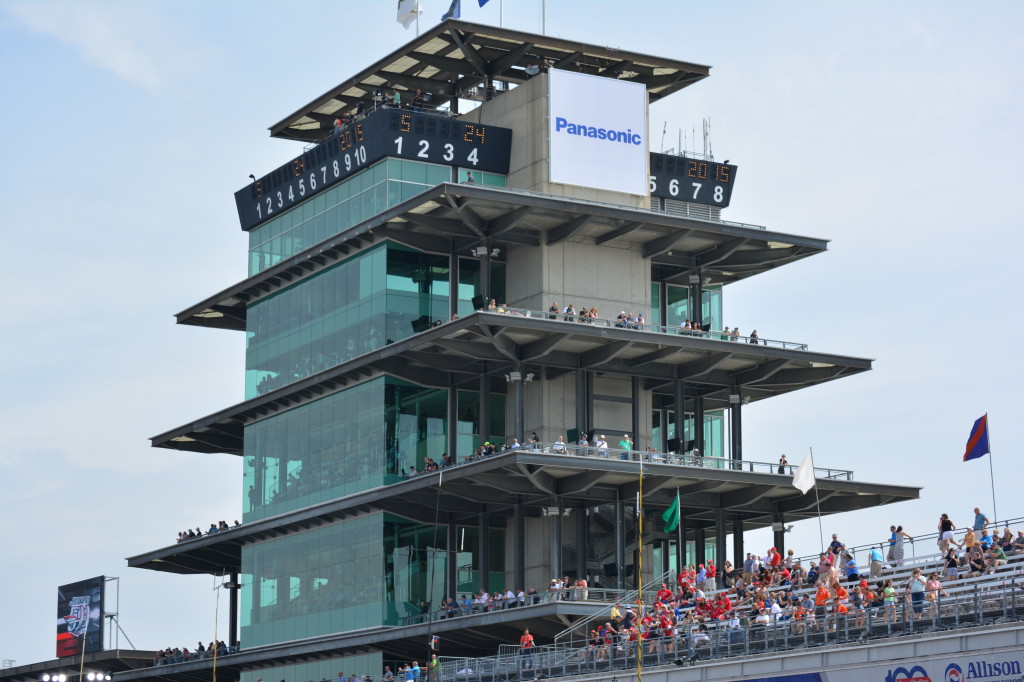
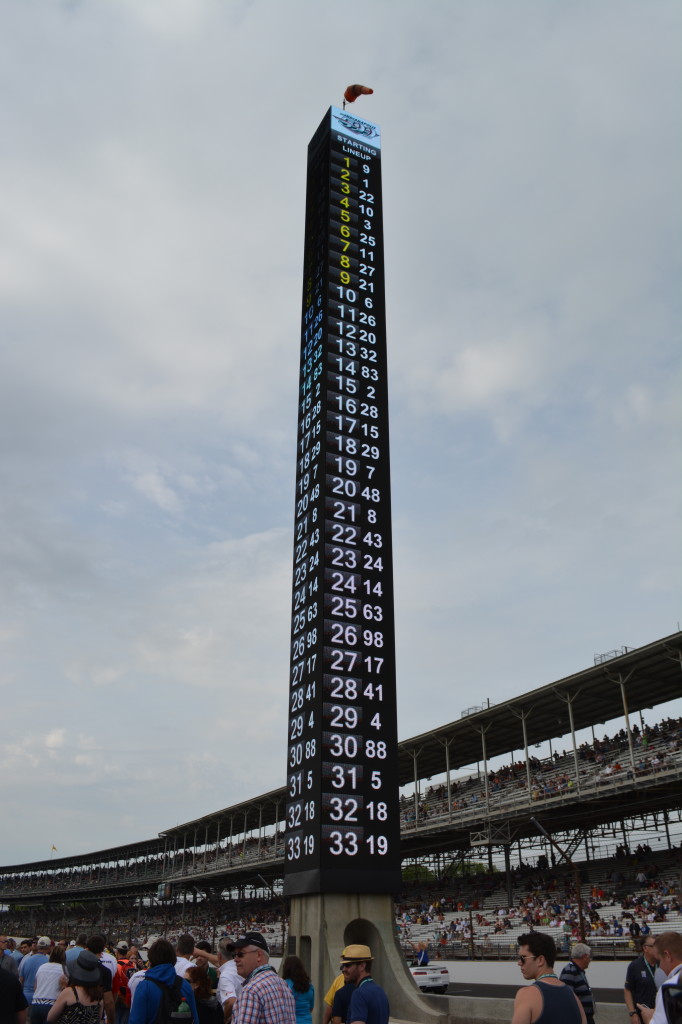
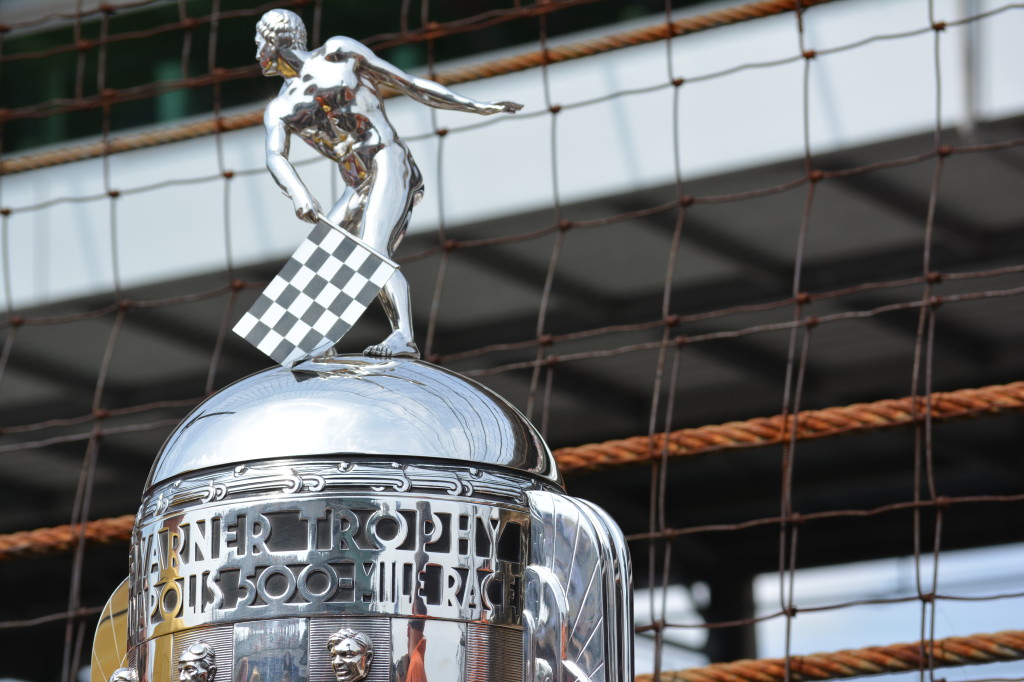
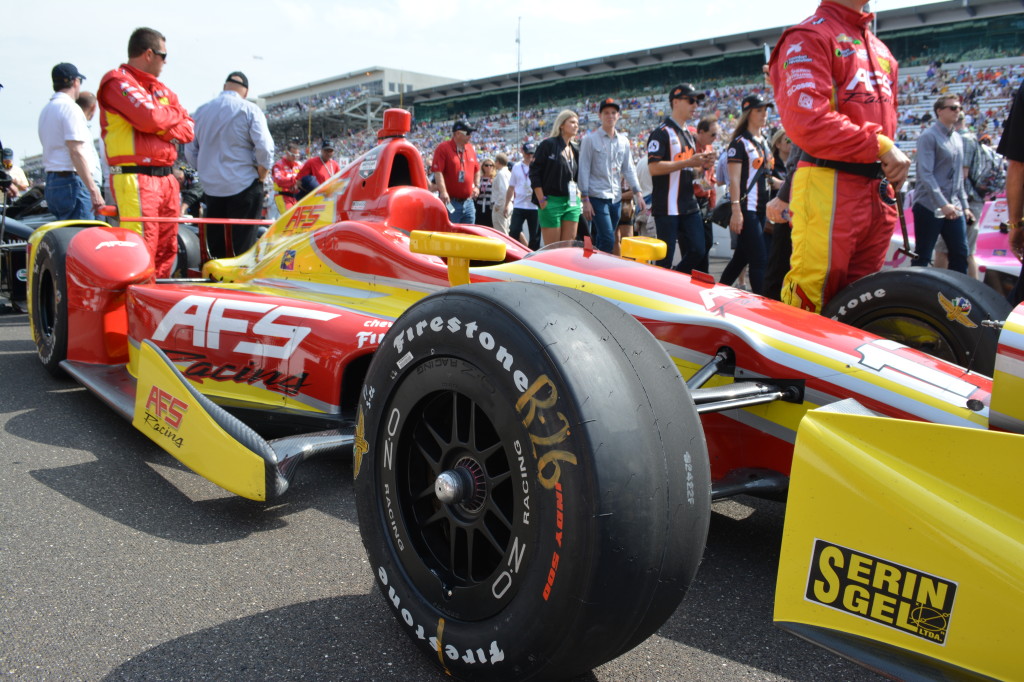
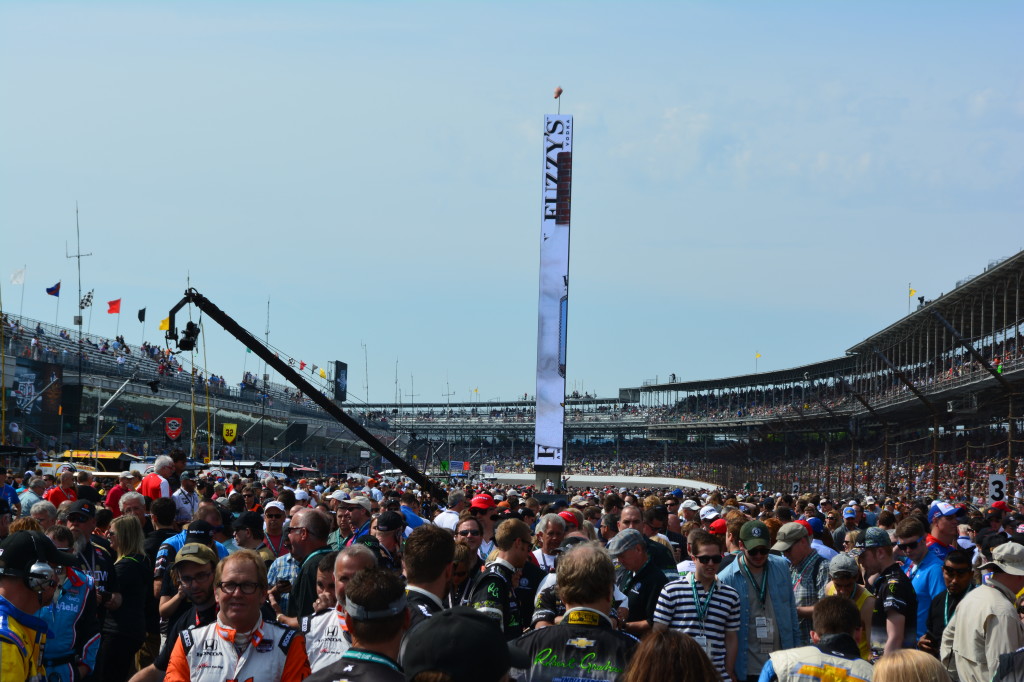
In 1909, some 3.2 million paving bricks were laid on top of the original Indianapolis Motor Speedway track. While modern technology has mercifully (for the drivers and their crews) evolved to include asphalt, a yard of original bricks remains at the finish line. The race winner and his or her team get to kiss the bricks as one of many Indy 500 traditions following the race, but fans took their opportunity to do likewise before the race as well.
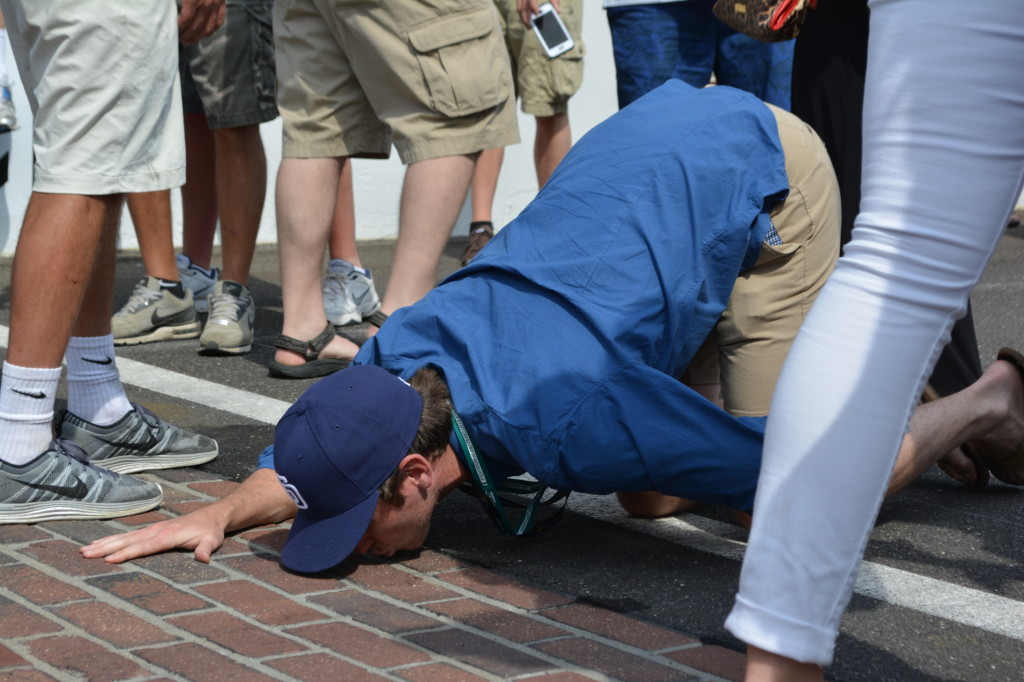
Fans could also get close-up looks at the IndyCar vehicles themselves, including the tires (all of which carry the logo of the Indianapolis Motor Speedway) and the driver’s steering wheels, which are considerably more complex than the ones any fan drove to the track.
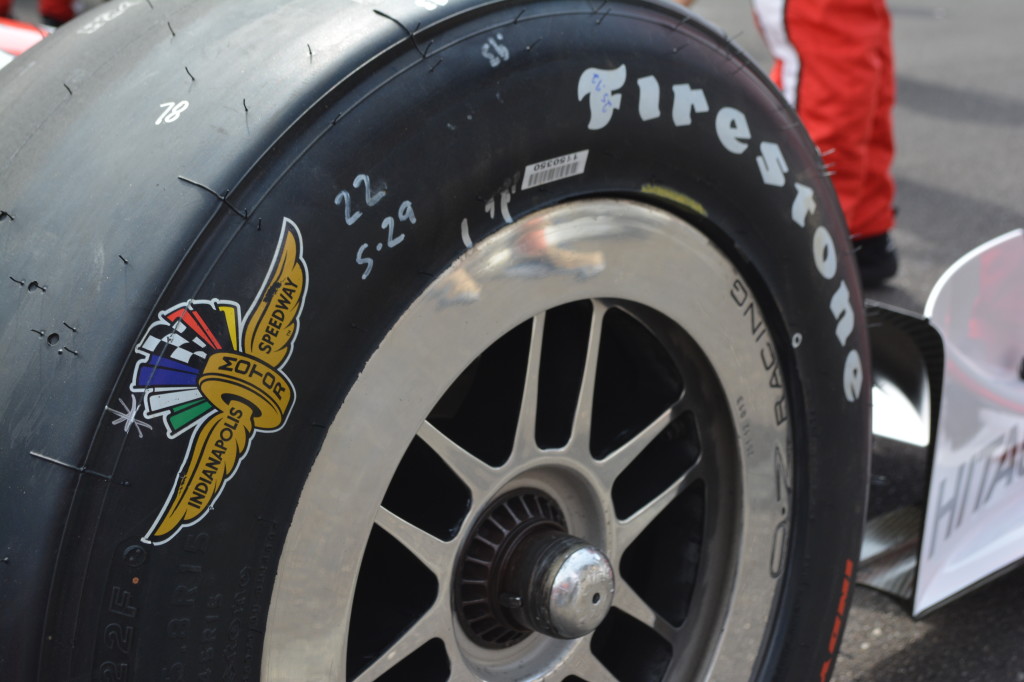
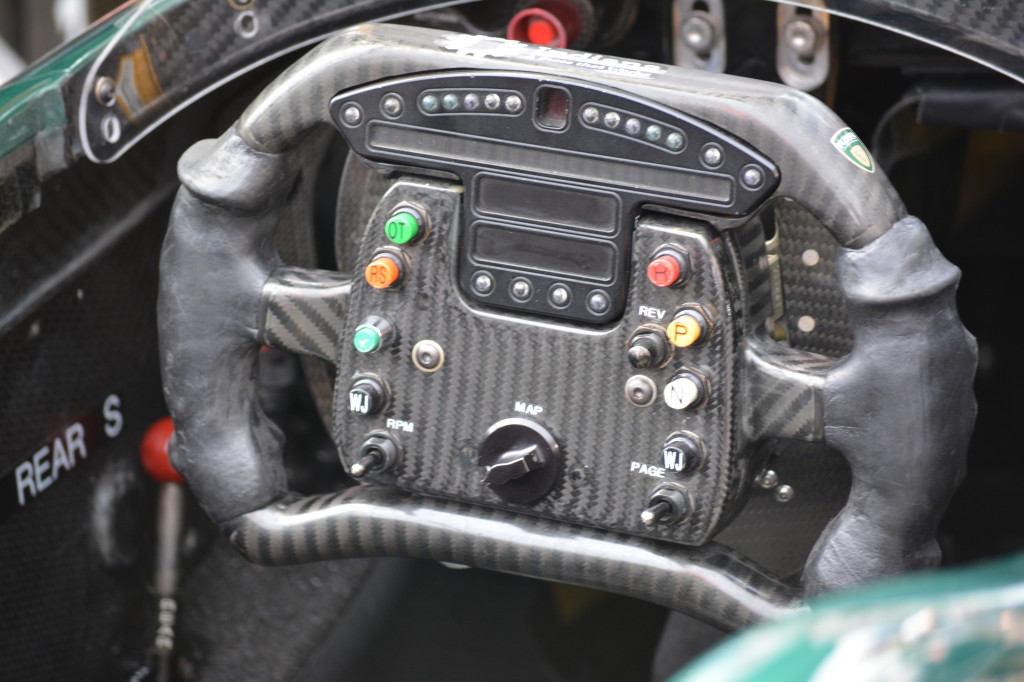
And while thousands took advantage of the pre-race festivities, there were a few famous names floating around as well. David Letterman, fresh off his retirement at CBS, was on hand to inspect the car that races for his team, a car that gave him a laugh when his crew revealed a caricature of himself on the side. Actor Patrick Dempsey was the honorary starter and had fun with the crowd below. Racing celebrities are also to be found. Motorsports legend Roger Penske, whose team would go on to win its 16th Indy 500, was in the pits inspecting each car before the race.
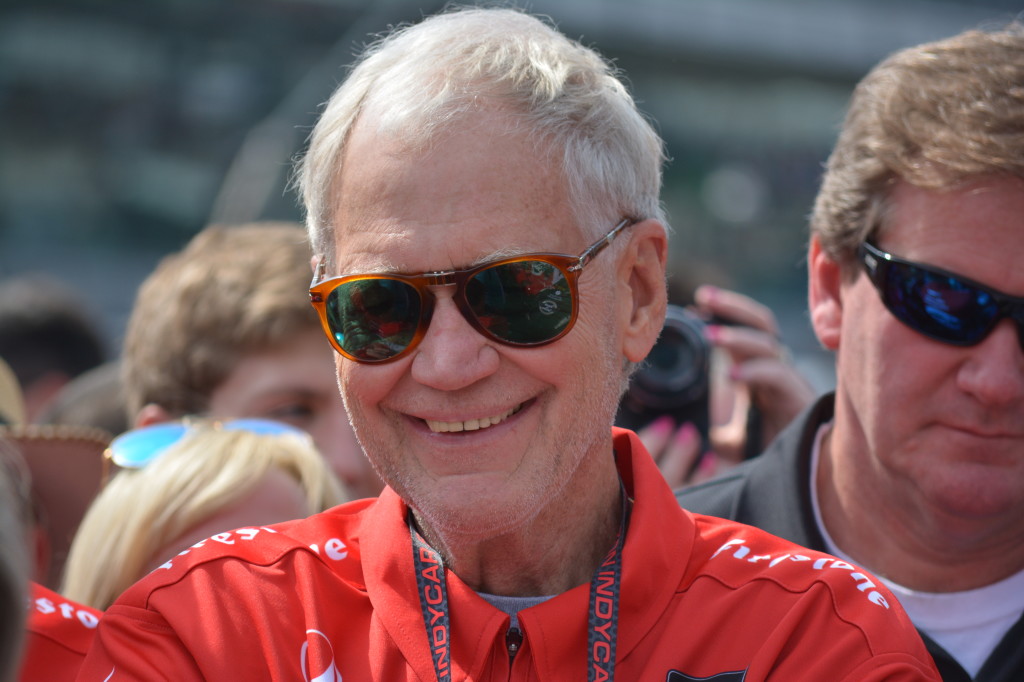
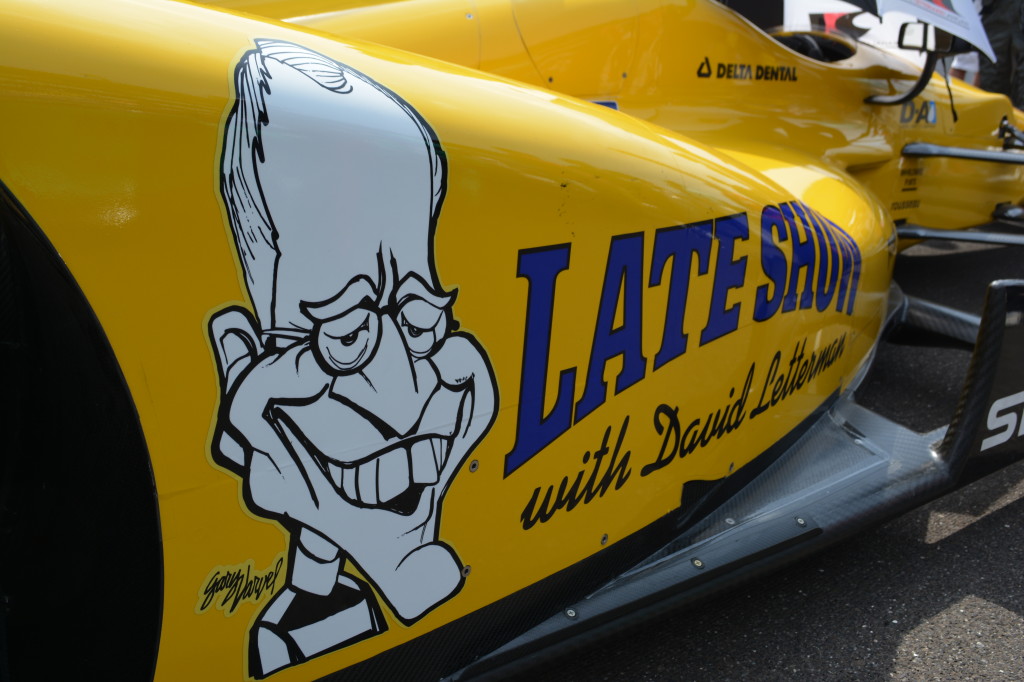
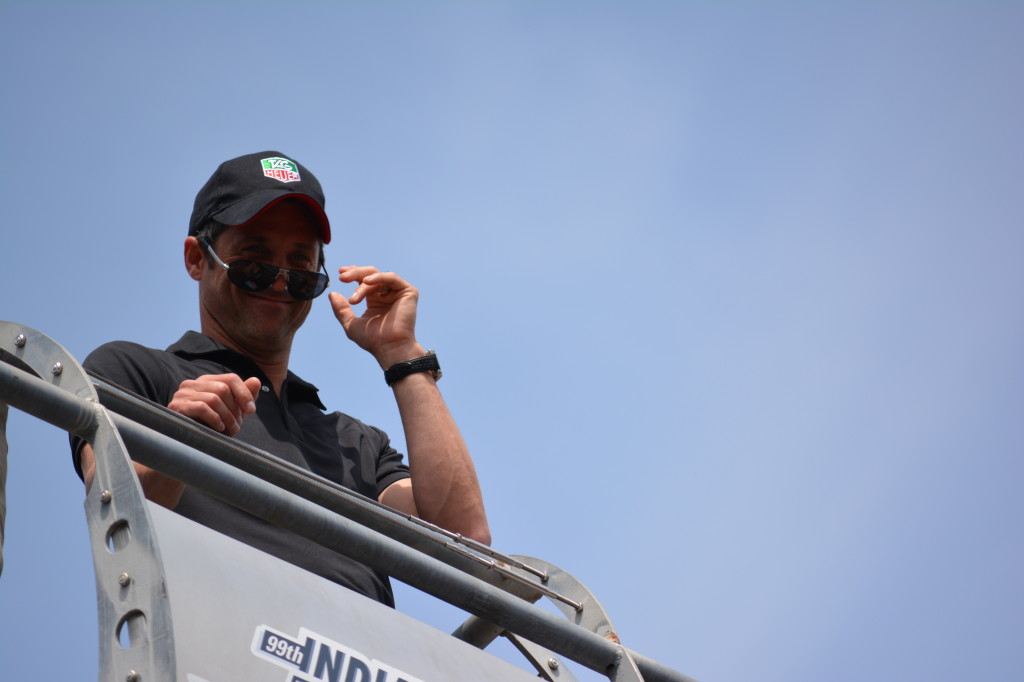
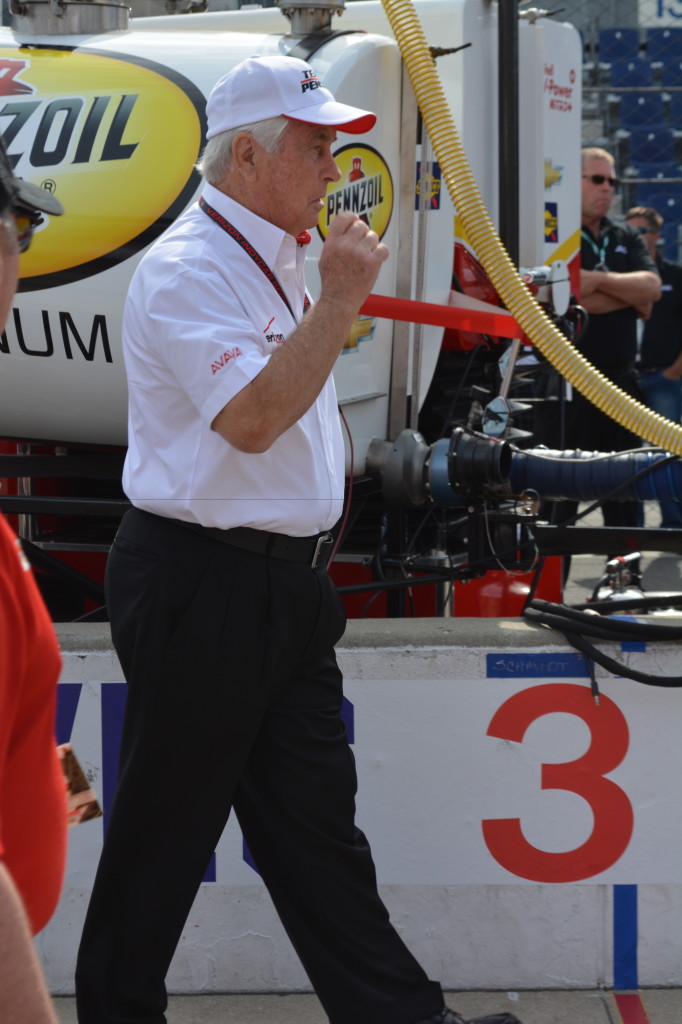
The pre-race official ceremonies did not disappoint either, with a salute to veterans for Memorial Day and the national anthem sung by former “American Idol” champion Jordin Sparks. Drivers were also introduced, with fans getting as close as they could with their phones to snap some images.
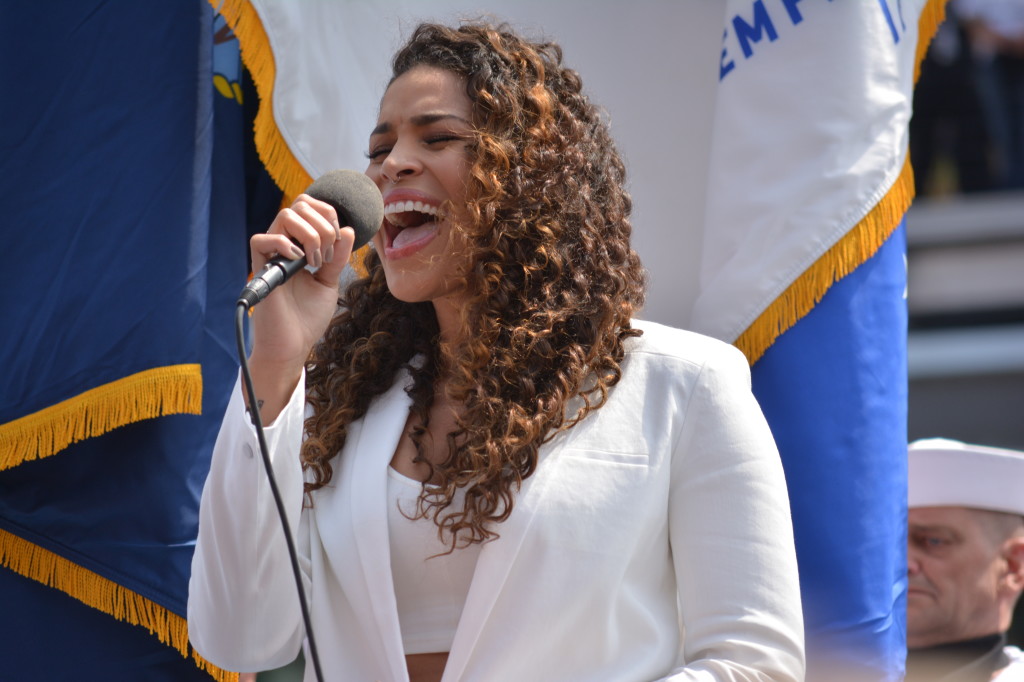
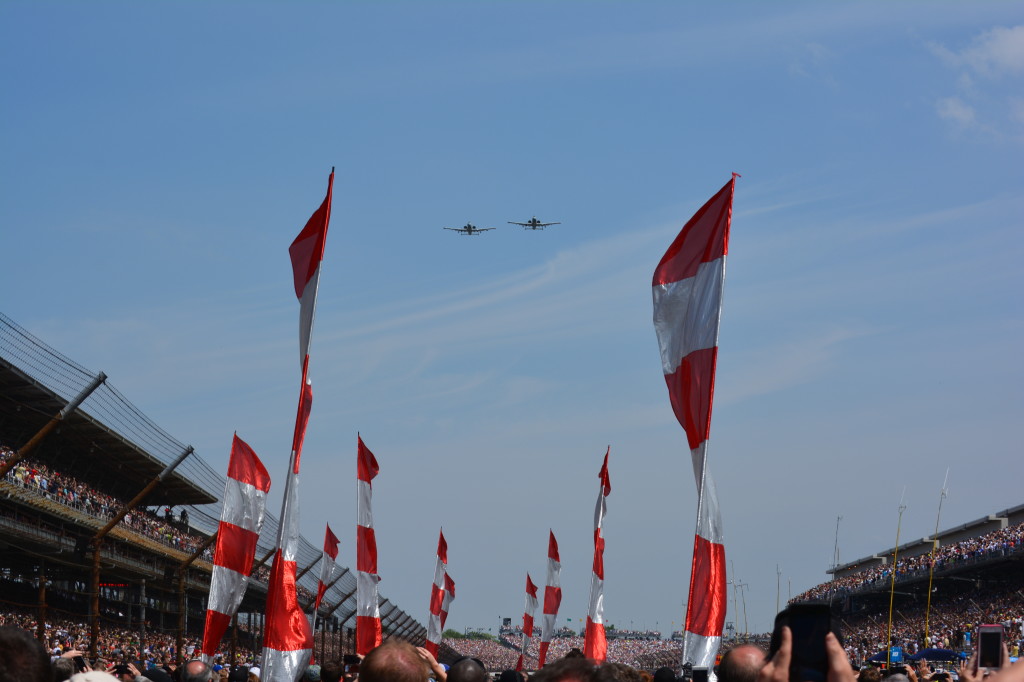
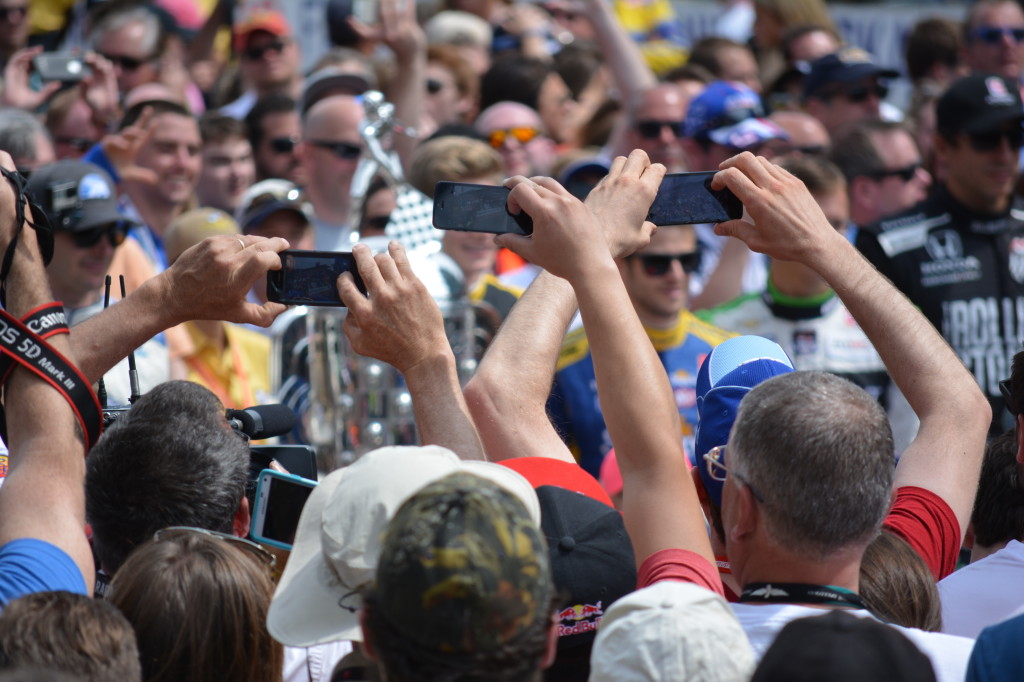
As for the race itself, it is a feast for the senses. Grandstands around the 2.5-mile track were filled for the 2015 race, as they are for most years. New video boards have helped some of those fans keep track of the action, which flies by at incomprehensible speeds. Many fans chose from a variety of ear protection, including some with radios that allowed them to tune into the communication among drivers, pit crews and overhead spotters that warn the drivers of dangers in front and behind.
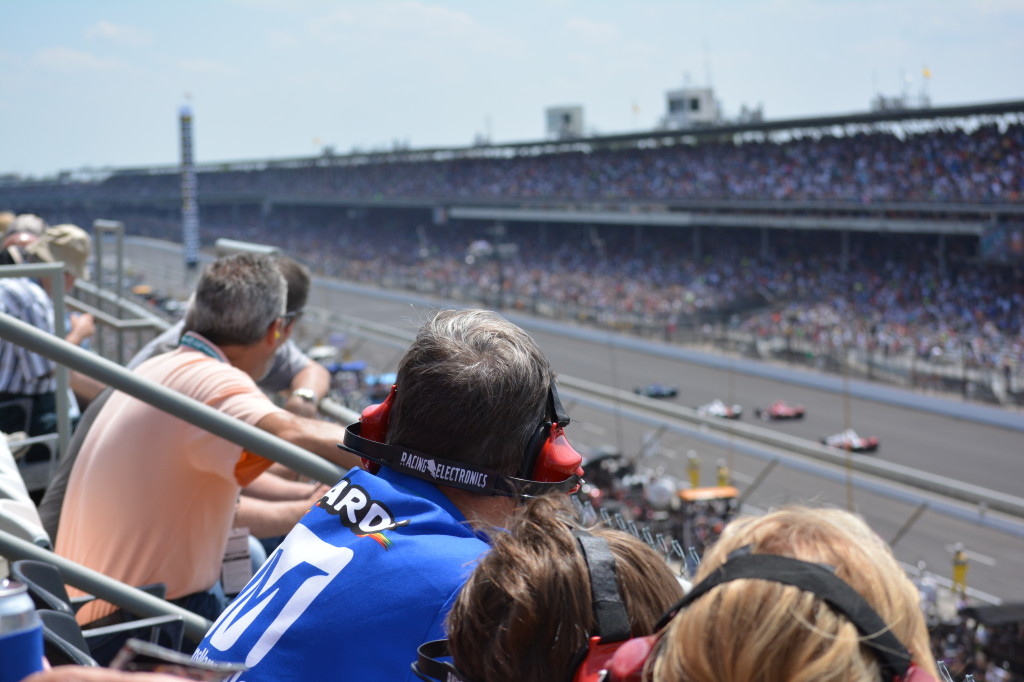
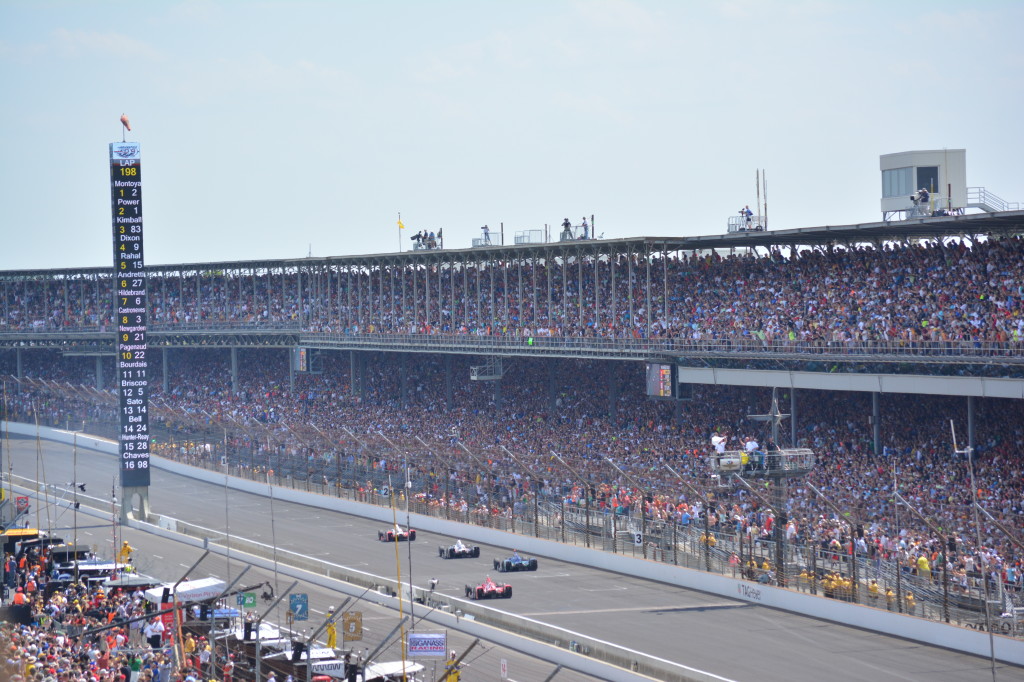
Still others chose to spend the time in the massive infield at the speedway. The infield is so large, it could fit Vatican City, the Roman Colosseum, Churchill Downs, Yankee Stadium, the Rose Bowl and the entire Wimbledon campus inside the oval of the track. Many chose to pass away the day in the Snake Pit, a raucous area where the party never stops, or on a number of grass berms overlooking the track, including at least one that is family friendly with no alcohol.
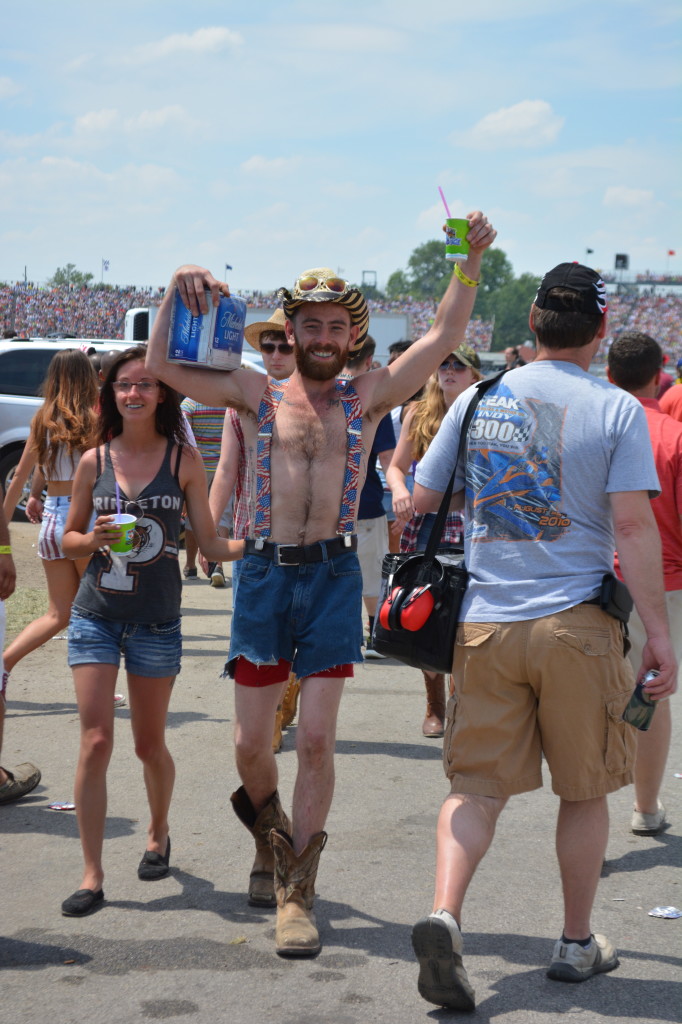
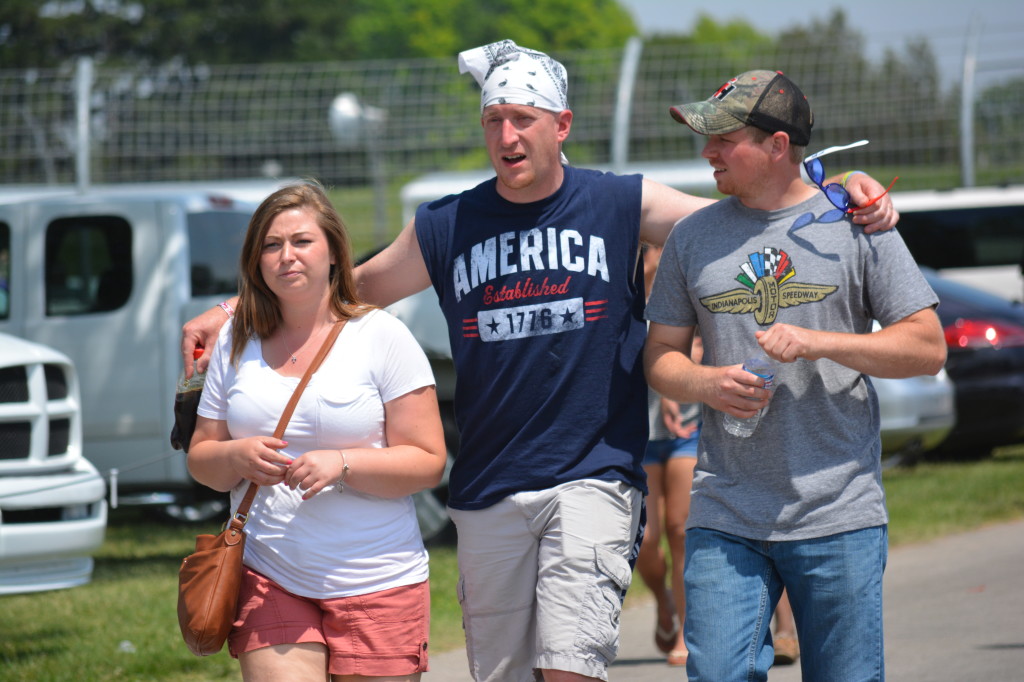 The 2015 race was the fourth-closest in Indy 500 history. After 500 miles of racing, a mere 0.1046 of a second separated the top two positions. Juan Pablo Montoya—racing in only his third Indy 500 over a long motorsports career that has included stops in Formula One and NASCAR—claimed his second career victory at the race, just ahead of Will Power.
The 2015 race was the fourth-closest in Indy 500 history. After 500 miles of racing, a mere 0.1046 of a second separated the top two positions. Juan Pablo Montoya—racing in only his third Indy 500 over a long motorsports career that has included stops in Formula One and NASCAR—claimed his second career victory at the race, just ahead of Will Power.
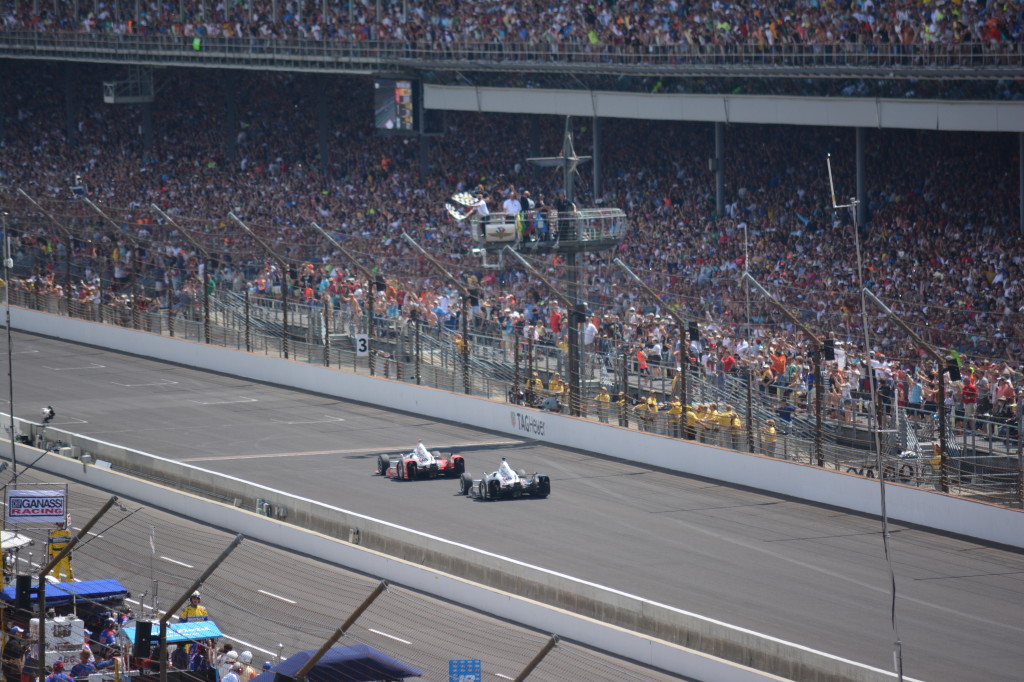
The experience of the race—and the opportunity for fans to interact across the city—underscore why the city is considered the racing capital of the world. Next year’s race will be the 100th running, and organizers have already begun thinking big. Improvements to the track are expected in the areas of seating, technology, gates and entryways, concession and restroom upgrades and new hospitality options.
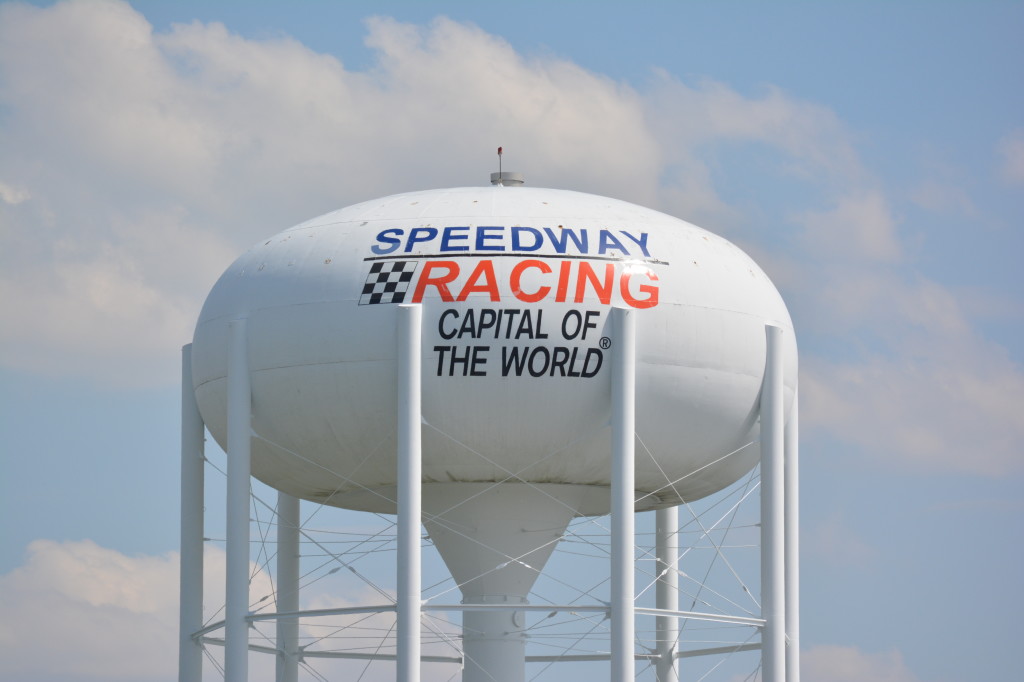 But to truly experience the scope of the Indianapolis Motor Speedway, one has to get behind the wheel—or at least in the passenger seat—of a car whipping around the track. I had the chance to experience such a lap with 2013 Indy 500 winner Tony Kanaan the day before the race. I was gripping my video recorder so tight that I didn’t quite realize my finger had gotten in the way halfway through, but here’s a look anyway at what a lap around the track feels like.
But to truly experience the scope of the Indianapolis Motor Speedway, one has to get behind the wheel—or at least in the passenger seat—of a car whipping around the track. I had the chance to experience such a lap with 2013 Indy 500 winner Tony Kanaan the day before the race. I was gripping my video recorder so tight that I didn’t quite realize my finger had gotten in the way halfway through, but here’s a look anyway at what a lap around the track feels like.
Posted in: Perspectives

